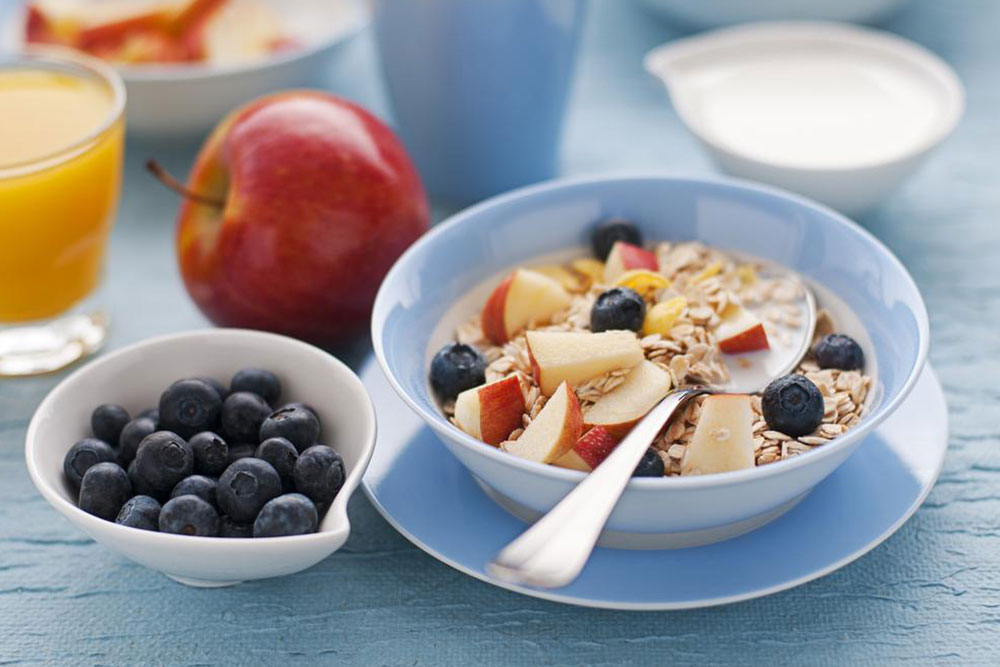Importance of Balanced Nutrition for a Healthy Lifestyle
Adopting a balanced diet is essential for a healthy lifestyle. Incorporate all vital nutrients—proteins, carbs, fats, vitamins, and minerals—in proper proportions to promote well-being, control weight, and prevent diseases. Regular exercise combined with mindful eating habits supports overall health. Focus on natural, unprocessed foods, moderate oil and sugar intake, and maintain meal timing for optimal results. Implementing these dietary strategies ensures a healthier, happier life and long-term wellness.
Sponsored

A well-designed diet is essential for selecting and preparing nutritious meals. Maintaining healthy eating habits can be challenging, but implementing effective dietary strategies is one of the smartest health decisions you can make. A balanced diet should include all necessary nutrients—carbohydrates, vitamins, proteins, and minerals—in appropriate amounts. Such diets support overall well-being, help control weight, and promote a healthy body. Contrary to popular belief, losing weight doesn’t mean sacrificing flavor or starving yourself; a nutrient-rich diet yields results without discomfort.
To maintain optimal health, consuming a diet with proper balance is crucial, regardless of body type. Well-planned nutrition helps prevent illnesses, maintain ideal weight, and supply essential nutrients.
Main Nutritional Components –
Effective diets combine vital nutrients such as vitamins, minerals, proteins, carbohydrates, and healthy fats. Proper nutrition not only supports weight management but also enhances sleep quality and overall vitality.
Vitamins and Minerals
Critical for bodily functions, these micronutrients boost immunity, assist in metabolism, and strengthen bones. Incorporate green vegetables like spinach, broccoli, beans, and lettuce to cover essential nutrient requirements.
Proteins
Proteins repair cells and promote growth. They’re vital during childhood, adolescence, and pregnancy. Found in legumes, dairy, fish, and meats, aim for about 30-35% of your daily intake from protein sources.
Carbohydrates
As the main energy source, carbs should be consumed through whole grains, fruits, and vegetables in moderation. They’re fiber-rich and keep you full for longer.
Fats
Fats provide energy, help produce hormones, and support nutrient absorption. Focus on healthy fats like omega-3s and monounsaturated fats, and avoid excess use of vegetable oils that may be harmful.
Guidelines for a Successful Diet –
Maintain a food journal to track your meals and portions. A structured diet plan helps prevent irregular eating habits. Consider eating five small meals daily, spaced three hours apart, to regulate digestion and avoid cholesterol spikes.
Healthy Food Choices
Educate yourself about nutritious foods and their benefits. Focus on including protein-rich, fiber-rich, and vitamin-dense options in your diet.
Limit Processed Foods
Processed foods may be convenient but often contain excess sugar, salt, and unhealthy fats. Replace these with natural fruits and vegetables for better health outcomes.
Benefits of Dairy Products
Dairy provides calcium vital for bone strength and muscle function. Include low-fat dairy or consider supplements if dairy isn’t preferred, to prevent conditions like osteoporosis.
Moderate Oil Consumption
Too much oily food contributes to weight gain and health issues. Choose oils rich in essential fatty acids that benefit cardiovascular health.
Sugar Intake
Overconsumption of sugar is linked to diabetes, obesity, and heart disease. Reducing sugar helps maintain weight and metabolic health.
Combining a balanced diet with regular physical activity, like walking, jogging, cycling, or gym workouts, enhances health benefits. Adjust your diet based on fitness levels and include energy-boosting snacks before workouts. Embrace lifestyle changes today for a longer, healthier life.






